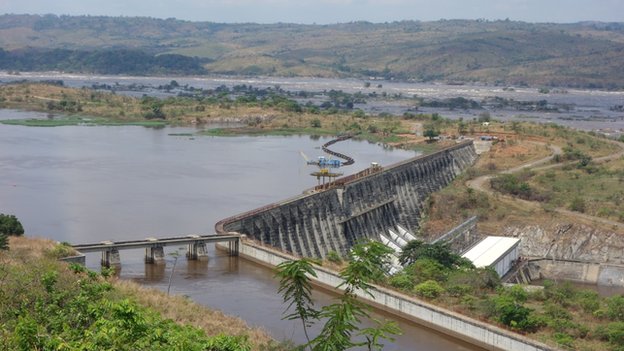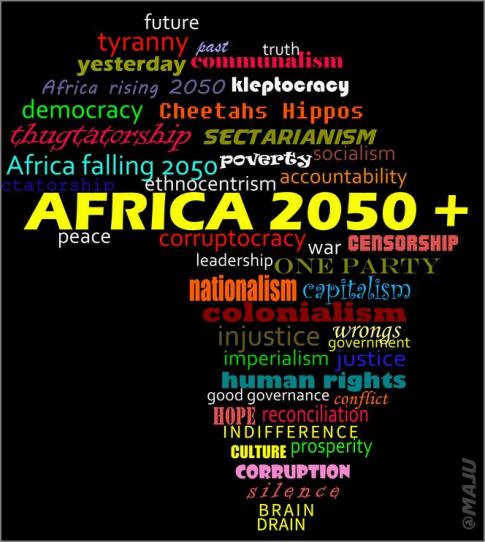Situational briefing to the General Assembly on the Secretary-General’s Call to Action on famine response and prevention
New York, 13 April 2017
As delivered by Ms Reena Ghelani, Deputy Director, OCHA Coordination and Response Division
His Excellency, Mr Peter Thomson, President of the General Assembly and
Mr Anthony Lake, Executive Director of UNICEF
Excellencies,
Ladies and Gentlemen,
I am delivering this statement on behalf of the Under-Secretary-General for Humanitarian Affairs and Emergency Relief Coordinator, Mr. Stephen O’Brien.
Thank you for this opportunity to brief on the grave situation facing millions of people in South Sudan, Somalia, Yemen and north-east Nigeria. The numbers are staggering. As his Excellency outlined, more than 20 million people face famine or the risk of famine across the four countries. Some 1.4 million children are severely malnourished. Over 21 million people lack sufficient access to health care, at a time when three out of the four countries are experiencing cholera outbreaks. And more than 20 million people lack clean water and sanitation. Around eighty per cent of affected populations live in rural areas and a combination of hunger and conflict is forcing people to be displaced, both internally and as refugees. Those who were forced from their homes in past years by conflict are being hit particularly hard as a consequence of this current crisis.
The crises in these four countries are protracted and complex – and the impacts will be felt for years.
In South Sudan, years of appalling violence and conflict have left over 5 million people in need of urgent food assistance, an estimated 100,000 of whom are, already, facing famine. More than 1 million more are on the brink of famine. Over a quarter of a million children are suffering severe acute malnutrition. Three years of conflict has displaced some 3.5 million people, disrupted agricultural production of farmers, and crippled the economy. Half of the country’s water points have been damaged or destroyed, and at least 5,000 people have contracted cholera in an outbreak that began in June of last year.
In Somalia close to 3 million people cannot meet their daily food needs. Some over 500,000 people have fled their homes this year alone in search of food, water, and safety. Acute Watery Diarrhea and Cholera has spread to 11 of 18 regions of the country, with over 18,000 cases reported just this year. Women are particularly impacted, sometimes forced to walk many kilometres to fetch water. In Somalia women will walk 25 to 50 kilometres on average to fetch water, exposing them to violence and sexual abuse.
Yemen is facing the largest food security crisis in the world with almost 7 million people requiring immediate life-saving assistance and at least 462,000 children suffering severe acute malnutrition. Conflict has damaged and obstructed water networks and only 45 per cent of the country’s health facilities are functioning.
And in north-east Nigeria, violence has left millions displaced and some 4.7 million people in severe food insecurity – at least 450,000 of them are children suffering from severe acute malnutrition.
This is the impact of hunger and famine: communities broken, families torn apart, and preventable deaths of men women and children from disease. Famine is about much more than food insecurity. It is about compounding vulnerabilities that leave millions of people without basic human dignity, without hope for the future. It leaves children stunted and out of school. Development gains are stalled or reversed. People abandon their homes, and are robbed of their livelihoods, exacerbating instability across entire regions.
Seven weeks ago, the Secretary-General called on the international community to take urgent action to prevent this looming catastrophe. He urged all actors to work together to save lives, reduce underlying vulnerabilities, and build long-term resilience to future shocks.
Humanitarian partners acted early. Humanitarian response plans and action for the year, in each of the four countries, had already incorporated the massive food and other key responses that would be required for the situation we face today. Large-scale operations are underway, in extremely challenging and dangerous environments.
Since February, UN agencies and their partners have reached over 1.2 million people in South Sudan, more than 330,000 people of them in the famine-affected or at-risk counties of Unity State. In Yemen, humanitarian partners have reached 5.8 million people with food and other assistance so far this year.
In Somalia, partners and the UN doubled our response from February to March, to reach 1.8 million suffering people with food aid and nearly 500,000 with livelihood support. Around 1.8 million people are targeted for assistance this month in Nigeria alone, where so far this year a quarter of a million people have been reached with emergency water and sanitation assistance, 3.8 million children vaccinated against measles, and over 900,000 people provided basic health services.
The humanitarian assistance being delivered on the ground is saving lives and livelihoods. But it is not enough.
While all four countries have unique contexts, they share a common component. That is of protracted conflict. Likewise, all four countries are marked by severe access constraints due to insecurity and some have costly bureaucratic impediments that impede the reach of life saving aid, and exacerbate the suffering of civilians.
In Somalia almost one third of the people who need help the most are living in areas under control of Al Shabaab where access is extremely limited. There are indications now that Al Shabaab is using this crisis as part of a “hearts and minds” campaign, to use the situation to feed people. South Sudan remains one of the most dangerous places in the world to be an aid worker – more than 12 humanitarian personnel have been killed this year alone. Here, conflict severely challenges humanitarian presence, forcing lengthy relocations of aid workers, including from famine-affected counties, and affecting directly millions of vulnerable South Sudanese people in need of humanitarian assistance.
In north-eastern Nigeria, where Boko Haram continues to launch attacks on military and civilian targets, an estimated 700,000 people remain beyond reach for humanitarian actors, living in what are feared to be desperate conditions. And in Yemen, where conflict and insecurity and strain on the economy are driving the crisis, restrictions on the movement of goods into non-Government-controlled ports are at times delayed.
Humanitarian operations in these four countries require more than US$5.6 billion this year as his Excellency has announced and we need this funding now. In order to be ahead of the game we need this funding now – especially for the priority sectors to respond and prevent famine in the four critical sectors of Food Security, Nutrition, Water and Sanitation, and Health. Following the Secretary-General’s call to action on Famine response and prevention, donors have generously committed approximately 21 per cent of the $4.4 billion required. I thank donors for these critically needed funds to save lives, but highlight that they remain less than a quarter of the amount needed to avert a catastrophe.
We thank the President of the General Assembly to have provided this dialogue today.
While humanitarians will continue to deliver and scale up where they are able, four things are required in order to effectively reverse these crises:
First, more political will is required to end the conflicts that have caused these crises. Without an end to conflict, violence, and violations of international humanitarian law, humanitarian conditions – including severe food insecurity – will continue to deteriorate. Hunger and suffering will increase.
Likewise in order for assistance to reach those who need it most there must be unhindered and sustained humanitarian access. All parties to conflict must abide by international humanitarian law and allow aid workers access to vulnerable people in need of support. More pressure needs to be exerted on these parties to abide by those obligations.
Thirdly, we urgently need further funding to back a robust humanitarian response. This includes funding from traditional and emerging donors, including development banks and the private sector. The upcoming ministerial-level pledging conference for Yemen, co-chaired by the Secretary-General and the Foreign Ministers of Switzerland and Sweden, provides an opportunity for countries to come together and unite behind humanitarian efforts in Yemen – for which less than 10 per cent of required funds have been received to date.
Finally, the severity and the scale of these crises call for a more comprehensive approach, a new way of working. The immediate goal of the humanitarian response is to save lives, but humanitarian response alone is not enough to reduce needs and address the risk and vulnerability that drive those needs. Longer-term action is needed now to help reduce needs and vulnerability and build resilience, preventing future catastrophes. To do this requires more risk tolerance, earlier and sustained development engagement, and more flexible and context-adaptable programming. Crucially, a broader range of financing options, better aligning short- and long-term funding, and working with a diversity of partners will be needed. We must now make tangible progress on this New Way of Working by scaling up the programmes required to reach our collective outcomes of reducing need, risk and vulnerability of those left behind as a result of conflict and crises.
Thank you.
Distributed by APO on behalf of Office for Coordination of Humanitarian Affairs (OCHA).






















